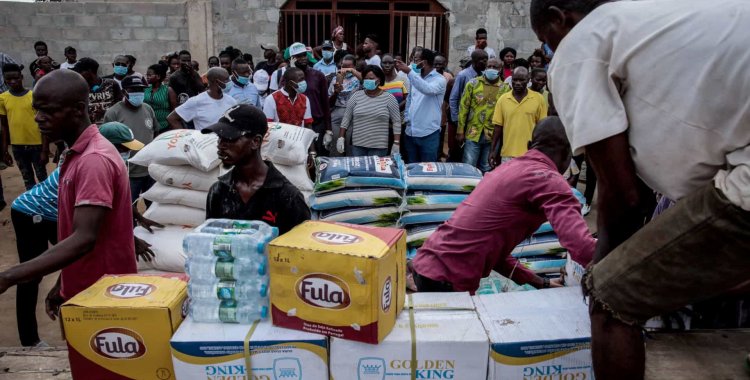The position was presented at a press conference by representatives of a group of organizations and individuals, integrated in the Southern Platform, concerned with the situation in the south of the country, who are joining forces to see the problem of hunger resolved "with seriousness and speed".
Cesaltina Abreu, Angolan researcher, said after presenting a protest note addressed to the President, João Lourenço, who "relativized hunger" in Angola, that it is essential to reinforce the food security program, "but with significant funds".
"But what we see in the budget proposal [2022] is that there is a cut. Another thing is to increase the nutrition program, which has been under the responsibility of the Ministry of Health," said Cesaltina Abreu, stressing that in the General Budget of the State (OGE) for 2022 this program was cut compared to the current year's budget.
According to Cesaltina Abreu, it is necessary to create the conditions to establish a relationship between the supply of food that needs to be available in the necessary quantities and places and that are culturally appropriate.
For the researcher, the OGE is the only existing indicator to measure the Government's intentions and from the point of view of food security, "nutrition was severely cut for 2022".
In her turn, the teacher and social activist, Cristina Pinto, said that the famine situation is not only found in the south and southeast of the country, but also in Luanda, the country's capital, Porto Amboim, in Cuanza Sul province.
"Uíge, I have received news that it is terrible, more and more beggars, children, women, to support families and this is more than evident, we cannot deny it, it is impossible to deny it," she said.
The secretary general of the Episcopal Commission for Justice and Peace of the Episcopal Conference of Angola and São Tomé (CEAST), Celestino Epalanga, stressed that the famine situation is widespread, stressing that it has been going around the country.
Celestino Epalanga was recently in Cazombo, Moxico province, and there he was informed that "many people are starving".
"An SOS from Cabinda also came to us. From Cabinda to Cunene and from the sea to the east, this is the problem of hunger, it is widespread. Obviously the south of Angola is the most affected by climate change and we have been working since 2012 on the sense not only to denounce, but also to find possible solutions to mitigate the effects of climate change, but the Government has not listened," he stressed.
According to Celestino Epalanga, civil society has presented concrete proposals, which are in the Presidency of the Republic and have been waiting for more than a year to be received to discuss the problem.
Regarding the number of deaths already verified as a result of hunger, Celestino Epalanga highlighted that there is no mapping of the exact number and that sporadic numbers are pointed out, especially in Gambos, in Huíla province.
For her part, the social activist, Laura Macedo, said that it is difficult to have a statistics on the number of deaths caused by hunger, because people are not registered at birth and when they die they are buried.
"The same way they are born, people are buried, without being recognized as citizens, therefore, there is no record of deaths", she stressed.







